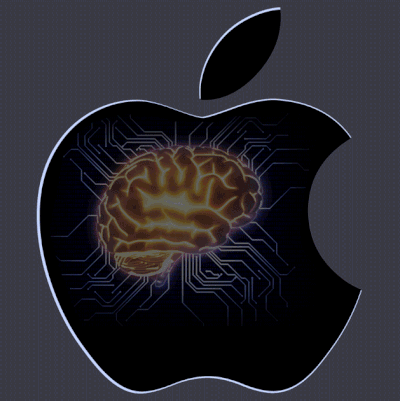
Apple, long a company that takes pains to maintain secrecy on several key initiatives — including AI — is now ready to join the Partnership on AI, an artificial-intelligence group with members like Amazon, Facebook, Google, IBM, and Microsoft, per a Bloomberg report.
The move is not surprising for the Partnership on AI, which has been an effort to get the large players in the tech space to — if not play nicely together — at least establish best practices and look closely at major findings during a time when machine learning and AI are making the kinds of leaps and bounds we used to associate with microprocessors. There isn’t really a Moore’s Law in place for AI, but it does seem like the cycle of machine-learning-aided AI is making major advances faster and faster: In 2016, Google was able to beat a top player in the board game Go, while AI platform UNU successfully ran the board on the Kentucky Derby.
Left on the outside is Apple, which in many ways brought the idea of consumer AI to market in 2011 with Siri, but has quickly been left behind. The main reason for this? Machine-learning AI depends on training, which relies on vast data sets. Google, Amazon, and Facebook have those data sets, both because users upload enormous amounts of data to their services and because these companies gather data about users because they are in the business of collecting data about users in order to sell them products, or to sell them to companies that sell products — a feedback loop that leads to even stronger data sets about users. Apple, on the other hand, is in the business of mainly selling high-margin hardware — and takes a more hands-off approach on gathering data from a finicky consumer base. Great for iOS users, bad for Apple’s attempts to work on AI.
For years, Apple employees were even heavily discouraged from publishing papers about their efforts in AI. But new head of AI, Carnegie Mellon professor Russ Salakhutdinov, has changed that — he even published Apple’s first official paper on AI.
AI places many companies in a very odd position, as can be seen by the Partnership on AI. Artificial intelligence and machine learning, perhaps more than any other current form of software and hardware development, depend on massive data sets — ones so large that even the biggest agglomerators of data struggle to keep up. Efforts like OpenAI are meant to provide some parity and best practices to everyone in the industry.
On the one hand, sharing this information among competitors can be beneficial — any advance a Microsoft or an IBM makes can likely be reproduced by Google relatively quickly. But it also places companies with clear leads — like Amazon, Facebook, and Google — in a position to take advantage of this info more quickly than other members of the Partnership on AI. But when you’ve fallen behind, like Apple has, you need to grab data where you can find it — especially with rumors of Apple’s own Amazon Echo competitor hitting the market this year or next.





























